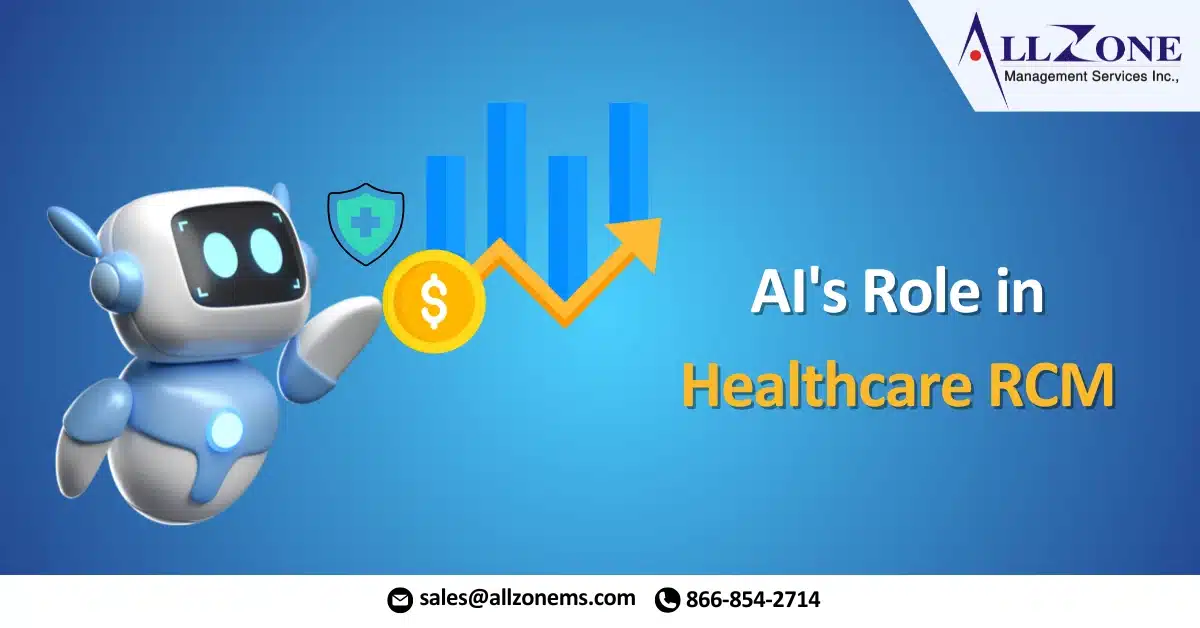As healthcare providers move into 2025, a technological revolution is reshaping revenue cycle management (RCM). Healthcare RCM with AI has emerged as a decisive factor in determining financial success or failure. With nearly 46% of hospitals and health systems already leveraging AI in their RCM operations, the industry faces a pivotal moment where keeping pace with payer sophistication is essential for survival.
From Reactive to Proactive Revenue Strategies
This transformation signifies a shift in revenue management approaches, transitioning from reactive to proactive strategies to address growing payer complexities. Providers are increasingly recognizing the need to counter advanced payer algorithms with their own Healthcare RCM with AI solutions. Those failing to adopt such technologies risk falling behind.
A recent management consulting firm report underscores AI’s transformative impact, revealing productivity gains of 15% to 30% in areas like call center operations. Proactive AI deployment is no longer optional—it’s a critical strategy to protect revenue streams, maintain financial stability, and ensure fair reimbursement in an increasingly automated healthcare landscape.
Accelerating Automation in Revenue Cycles
Automation in RCM is gaining momentum, with 74% of hospitals implementing some form of revenue-cycle automation. This includes both AI and robotic process automation (RPA), driving advancements in:
- Predictive analytics for denial management
- Automated coding and documentation review
- Real-time payment optimization
- Contract modeling and analysis
Healthcare RCM with AI addresses staffing shortages while enhancing operational efficiency. However, as AI adoption accelerates, healthcare organizations must implement responsible strategies that prioritize patient privacy, data security, and ethical oversight. Comprehensive governance frameworks are crucial to navigating regulatory requirements while maintaining the highest data protection standards.
Strategic Investment and Partnerships
To succeed in 2025, healthcare organizations must make critical decisions about acquiring and implementing AI capabilities. While some are building internal infrastructure, others are partnering with experienced vendors for efficient access to advanced AI platforms and expert teams of clinicians, attorneys, and RCM professionals.
- Internal Development: Requires investments in cloud computing, data integration systems, security frameworks, and human capital, including AI specialists and data analysts.
- Partnerships: Offer access to proven solutions and expertise, reducing costs and learning curves associated with building systems from scratch.
Both approaches demonstrate measurable financial benefits, including reduced denial rates, faster payment cycles, lower administrative costs, and improved first-pass claim acceptance rates through AI-driven pre-submission analysis. The return on investment for AI solutions is clear, making it easier for organizations to justify their strategies.
Looking Ahead
In 2025, the gap between organizations embracing AI and those resisting it will widen. Success will hinge on strategic implementation that balances cutting-edge technology with human expertise. AI should be viewed as a tool to enhance, not replace, existing systems, optimizing revenue cycle operations while maintaining a focus on patient care and ethical considerations.
Healthcare revenue cycle management is evolving rapidly, and 2025 is set to be a defining year. Providers who strategically invest in Healthcare RCM with AI, prioritize responsible implementation, and balance innovation with ethical practices will thrive in this new era of healthcare finance. AI adoption is not just a technological upgrade but a fundamental transformation, requiring careful planning and execution to achieve sustainable success.
Transforming Healthcare RCM with AI: Why RCM Companies are Essential
Healthcare revenue cycle management (RCM) is undergoing a revolution with the integration of artificial intelligence (AI). RCM companies are at the forefront of this transformation, leveraging AI to address inefficiencies, streamline processes, and optimize financial outcomes for healthcare providers.
AI-powered tools in RCM offer unparalleled accuracy in claims processing, denial management, and coding. These technologies analyze vast amounts of data to identify patterns, predict payment outcomes, and automate routine tasks like eligibility verification and claims submission. The result is faster reimbursements, reduced administrative burden, and improved cash flow for healthcare organizations.
RCM companies are uniquely positioned to maximize these benefits by combining AI with domain expertise. They provide end-to-end solutions tailored to each provider’s needs, ensuring compliance with ever-changing regulations and payor policies. AI’s predictive analytics also empower RCM companies to preempt denials, uncover revenue opportunities, and enhance decision-making.
By outsourcing to AI-driven RCM companies, healthcare providers can focus on delivering patient care without worrying about financial complexities. With their proven ability to harness AI for accuracy, efficiency, and growth, RCM companies are pivotal in helping healthcare organizations thrive in an increasingly competitive and value-based care landscape.
Embrace the future of RCM—leverage AI and expert RCM services today.

